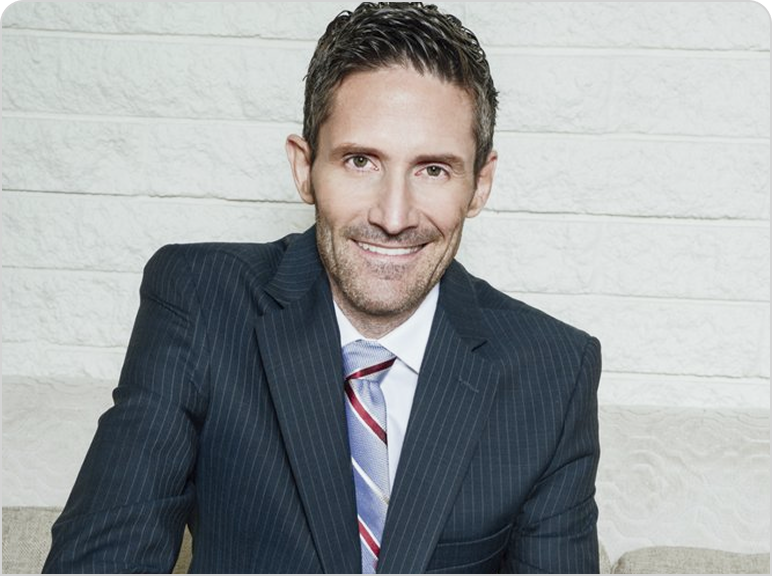What Do I Need to Know Before Seeing a Naturopath?

Before seeing a naturopath, you should know that they focus on natural treatments like nutrition, herbs, and lifestyle changes to support overall health. Bring your full medical history, current medications, and lab results so they can personalize your care safely. Be ready to discuss your daily habits, diet, and stress levels for the best results.
What is a Naturopathic Doctor?
A naturopathic doctor (ND) completes four years of graduate medical school and passes licensing exams to diagnose and treat health conditions using natural therapies.
Licensed naturopathic doctors study anatomy, physiology, pathology, pharmacology, and clinical diagnosis. These doctors also learn botanical medicine, clinical nutrition, homeopathy, and physical medicine. The Council on Naturopathic Medical Education accredits seven naturopathic medical schools across North America.
Naturopathic doctors complete over 1,200 clinical training hours before graduation. Students work directly with patients in supervised settings. After graduation, candidates pass the Naturopathic Physicians Licensing Exam (NPLEX) to practice.
Six foundational principles guide naturopathic medicine: the healing power of nature, identifying root causes, doing no harm, treating the whole person, doctor as teacher, and prevention. These principles shape every aspect of treatment from diagnosis through ongoing care.
How do Naturopathic Doctors Differ From Medical Doctors?
Naturopathic doctors focus on identifying root causes and supporting natural healing processes, while medical doctors primarily treat symptoms with pharmaceutical interventions.
Medical doctors complete residency programs lasting 3-7 years after medical school. Naturopathic doctors rarely complete residencies due to limited funding. Only Utah requires a one-year residency for naturopathic licensure.
Medical doctors spend more time in clinical rotations and surgical training. Naturopathic doctors dedicate 30% more time to classroom education, including extensive nutrition coursework. Medical doctors receive minimal nutrition training, often under 20 hours total. Understanding these traditional medicine helps patients choose appropriate care.
What Credentials Should a Naturopath Have?
Licensed naturopathic doctors must graduate from accredited institutions, pass NPLEX examinations, and maintain state licensure with continuing education requirements.
Currently, 26 U.S. jurisdictions license naturopathic doctors, including Washington D.C., Puerto Rico, and the U.S. Virgin Islands. In Canada, six provinces and one territory regulate naturopathic practice.
Licensed naturopathic doctors complete accredited four-year medical programs, while unlicensed practitioners may have correspondence courses or unaccredited training. States without licensing laws allow anyone to use the title "naturopath." Verify credentials through state licensing boards before booking appointments. Learning more about why you should see an ND can clarify the benefits of working with properly credentialed practitioners.
What Happens During the First Naturopathic Appointment?

The first appointment lasts 60-90 minutes and includes comprehensive health history review, physical examination, and personalized treatment plan development.
Naturopathic doctors ask detailed questions about current symptoms, past medical conditions, medications, supplements, diet, sleep patterns, stress levels, exercise habits, and family health history. The doctor reviews all body systems to identify patterns and imbalances.
Physical Examination Components
Physical exams in naturopathic medicine mirror conventional medical exams. Vital signs including blood pressure, pulse, temperature, and respiratory rate get measured. Heart and lung sounds are assessed through auscultation. Abdominal palpation checks for tenderness and organ enlargement. Thyroid palpation identifies enlargement or nodules. Skin, hair, and nail examination reveals nutritional deficiencies.
What tests do naturopathic doctors order?
Naturopathic doctors order standard blood work, imaging studies, and specialized functional medicine tests to assess nutritional status, hormone levels, and organ function.
Licensed NDs can order complete blood counts, metabolic panels, thyroid panels, hormone tests, and diagnostic imaging like X-rays and MRIs. Some doctors use specialized tests for food sensitivities, gut microbiome analysis, heavy metal exposure, and adrenal function.
Test costs vary from 50 dollars for basic blood work to over 1,000 dollars for comprehensive functional medicine panels. Insurance coverage depends on the specific plan and test type.
What Conditions do Naturopathic Doctors treat?
Naturopathic doctors treat digestive disorders, hormonal imbalances, chronic pain, mental health conditions, autoimmune diseases, and metabolic dysfunction.
According to a 2015 AANMC survey, patients most commonly seek naturopathic care for digestive issues like IBS, bloating, and food sensitivities. Hormonal problems including thyroid disorders and menopause symptoms rank second in frequency.
Common Conditions Responding to Treatment
Naturopathic doctors effectively treat IBS, food sensitivities, SIBO, acid reflux, and inflammatory bowel conditions. Treatment addresses gut microbiome imbalances, identifies food triggers, and heals intestinal lining. Many patients benefit from natural medicine approaches for managing autoimmune conditions alongside conventional care.
Thyroid problems, menopause symptoms, PCOS, and adrenal dysfunction respond to naturopathic interventions. Chronic fatigue, fibromyalgia, and general low energy benefit from identifying underlying causes including nutrient deficiencies and hormone imbalances. Exploring options for fixing gut and digestive problems provides additional strategies.
Naturopathic doctors manage chronic conditions and provide supportive care but do not perform major surgery or handle medical emergencies. For cancer, heart disease requiring surgery, or severe trauma, patients need conventional medical specialists.
What Treatment Methods do Naturopathic Doctors Use?
Naturopathic doctors prescribe dietary modifications, botanical medicine, nutritional supplements, physical therapies, lifestyle counseling, and stress management techniques.
Dietary interventions form the foundation of naturopathic treatment plans. Doctors create personalized meal plans based on individual health conditions. Treatment may involve elimination diets, anti-inflammatory protocols, or specific macronutrient ratios.
Herbal medicine uses plant-based remedies in forms like teas, capsules, tinctures, and topical applications. Common botanical treatments include turmeric for inflammation, ginger for digestion, chamomile for sleep, and echinacea for immune support.
Vitamin and mineral supplements correct deficiencies and support optimal function. Testing identifies specific needs rather than generic protocols. Common supplements include vitamin D for immune function, magnesium for sleep, omega-3 fatty acids for inflammation, and probiotics for gut health.
Doctors also incorporate homeopathic remedies for various conditions. Understanding what homeopathic medicine can treat helps patients set realistic expectations for this treatment modality.
How Long Does Naturopathic Treatment Take?
Treatment duration ranges from 2-4 weeks for acute conditions to 6-12 months for chronic health problems.
Simple nutritional deficiencies show improvement within 4-8 weeks. Hormonal imbalances require 3-6 months of consistent treatment. Autoimmune conditions need 6-12 months or longer for symptom management.
Natural treatments work more slowly than pharmaceutical drugs. The body needs time to restore balance and heal underlying dysfunction. Setting proper goals helps, especially when addressing long-term issues like chronic fatigue through naturopathic medicine.
Individual response varies based on several factors. Age affects healing capacity. Condition severity influences timeline. Treatment compliance matters significantly. Stress levels impact healing. Sleep quality affects every aspect of health and treatment response.
How Much Does Naturopathic Care Cost?
First appointments cost 150-400 dollars and last 60-90 minutes, while follow-up visits cost 75-200 dollars and last 30-60 minutes.
Geographic location affects pricing significantly. Urban areas charge higher rates than rural regions. Laboratory tests range from 50-500 dollars for standard blood work. Comprehensive functional medicine panels cost 100-1,000 dollars. Supplements typically cost 30-200 dollars monthly. IV therapy sessions range from 100-300 dollars per session.
Insurance Coverage Realities
Insurance coverage varies by state, carrier, and plan type, with better coverage in states that license naturopathic practice. Original Medicare does not cover naturopathic services. Some Medicare Advantage plans previously offered limited coverage, but most ceased naturopathic benefits in 2024. Six states provide Medicaid coverage for licensed naturopathic doctors.
Private insurance plans may cover office visits if the naturopathic doctor participates in the network. Coverage rarely extends to supplements, herbal medicine, or specialized functional medicine testing.
Request detailed superbills with diagnostic and procedure codes. Submit claims promptly and obtain letters of medical necessity for denied services. Health Savings Accounts (HSA) and Flexible Spending Accounts (FSA) typically cover naturopathic appointments and supplements.
What Should I Bring to My First Appointment?
Bring recent medical records, complete medication lists, laboratory results, imaging reports, and written health questions.
Complete medical documentation helps naturopathic doctors understand health history and avoid duplicate testing. Gather medication lists including dosages and frequency, supplement lists with brand names and amounts, recent blood work from the past 6 months, imaging results like X-rays or MRIs, and letters from specialists.
Prepare information about past surgeries and major illnesses, family health conditions like diabetes or heart disease, allergies to medications and foods, current symptoms including onset and severity, and previous treatments with their effectiveness.
What Questions Should I ask a Naturopathic Doctor?
Ask about education credentials, licensing status, treatment philosophy, experience with specific conditions, and expected outcomes.
Verify professional qualifications before committing to treatment. Ask which accredited naturopathic medical school the doctor attended, whether they hold active state licensure, how many years they have practiced, and how many patients with your condition they have treated.
Understanding treatment methods and expected timelines matters before starting care. Important questions include what diagnostic tests the doctor recommends, which treatments they will use for your condition, how long until symptoms improve, what potential side effects or risks exist, and how progress will be measured.
Are There Risks with Naturopathic Treatments?
Natural treatments can cause supplement interactions, allergic reactions, detoxification symptoms, and rare complications from physical therapies.
Herbs and supplements can alter medication metabolism and effectiveness. St. John's Wort interferes with birth control pills and antidepressants. High-dose vitamin E increases bleeding risk. Always disclose all supplements to medical doctors and naturopathic doctors.
Dietary changes and detoxification protocols may temporarily worsen symptoms. Common initial reactions include headaches, fatigue, digestive changes, and skin breakouts. These symptoms typically resolve within 1-2 weeks.
Can I See Both a Naturopathic Doctor and Medical Doctor?
Patients can receive care from both medical doctors and naturopathic doctors simultaneously for comprehensive health management.
Medical doctors handle emergencies, surgery, and serious acute conditions. Naturopathic doctors address chronic health problems, prevention, and natural symptom management. This collaborative approach reflects the principles of integrative medicine.
Sign medical release forms allowing providers to communicate and share complete treatment information. Patients must inform each provider about all medications and supplements, test results from other doctors, new diagnoses, and treatment plan changes.
When Should I See a Medical Doctor Instead?
Seek emergency medical care for chest pain, severe injuries, high fevers, sudden severe pain, or life-threatening conditions.
Visit medical doctors for heart attacks or strokes, broken bones and severe trauma, surgical needs, cancer diagnosis and treatment, and acute infections requiring antibiotics. Naturopathic doctors excel at managing chronic conditions like digestive disorders, hormonal imbalances, fatigue, and preventive care.
How Do I Find a Qualified Naturopathic Doctor?

Search professional directories from the American Association of Naturopathic Physicians, verify state licensing, and check credentials through official boards.
Find naturopathic doctors through the American Association of Naturopathic Physicians (AANP) directory, state naturopathic medical association websites, and the Association of Accredited Naturopathic Medical Colleges (AANMC) finder tool.
Confirm education and licensing status before scheduling appointments. Verify through state licensing board databases, confirm graduation from accredited schools, review disciplinary action records, and verify NPLEX exam completion.
What Makes a Good Naturopathic Doctor Match?
A good match involves clear communication, mutual respect, treatment philosophy alignment, and patient comfort during appointments.
Consider communication style and explanation clarity, willingness to answer questions thoroughly, respect for patient concerns and preferences, and collaborative approach rather than authoritative methods. Trust your instincts. If the relationship feels uncomfortable after 2-3 visits, seek a different practitioner.
How Does Naturopathic Medicine Compare to Functional Medicine?
Naturopathic medicine is a specific medical degree and training program, while functional medicine is a framework any doctor can adopt.
Both approaches identify root causes, treat the whole person, and use natural therapies. Some naturopathic doctors practice functional medicine. Some medical doctors practice functional medicine. Understanding the nuances between integrative and functional medicine helps patients make informed choices.
What Should I Expect for Treatment Success Rates?
Success rates vary by condition, treatment compliance, and individual health factors, with realistic improvement rather than complete cures for most chronic conditions.
Realistic outcomes include digestive symptoms showing 60-80% improvement within 3-6 months, hormonal issues demonstrating 50-70% symptom reduction in 3-6 months, chronic pain achieving 40-60% pain reduction in 2-4 months, and fatigue experiencing 50-75% energy improvement in 2-3 months.
What are Red Flags When Choosing a Naturopathic Doctor?
Avoid practitioners who promise guaranteed cures, discourage conventional medical care, lack proper credentials, or sell only their own product lines.
Warning signs include claims of cancer cures through supplements alone, pressure to purchase expensive products immediately, instructions to stop prescription medications without medical doctor consultation, inability to provide licensing documentation, and defensive responses to credential questions.
Can Naturopathic Doctors Help with Mental Health?
Naturopathic doctors treat anxiety, depression, and stress through nutritional support, herbal medicine, lifestyle modifications, and gut-brain axis optimization.
Mental health treatment addresses nutritional deficiencies affecting brain function, blood sugar imbalances causing mood swings, gut microbiome impact on neurotransmitter production, and stress hormone dysregulation. Understanding how stress impacts mental health helps patients recognize when professional support becomes necessary.
Naturopathic doctors work alongside therapists and psychiatrists for comprehensive mental health support. They complement conventional treatment rather than replace mental health professionals.
What is the Difference Between Naturopathic Medicine and Holistic Medicine?
Naturopathic medicine is a specific medical degree requiring four years of graduate study, while holistic medicine is a treatment philosophy any provider can adopt.
Holistic medicine treats the whole person including physical, mental, emotional, and spiritual aspects. Naturopathic doctors practice holistic medicine, but so do some medical doctors, osteopaths, and other practitioners. Exploring holistic medicine principles provides additional context for this treatment approach.
Final thoughts
Successful naturopathic care requires verified credentials, realistic expectations, active patient participation, and open communication with all healthcare providers.
Licensed naturopathic doctors complete rigorous medical training and pass national board exams. Patients benefit most when combining natural and conventional approaches for comprehensive health management.
Research credentials thoroughly before appointments. Prepare complete medical documentation. Ask direct questions about treatment options, costs, and expected outcomes. Give natural treatments adequate time to work, typically 3-6 months for chronic conditions.
Understanding the full scope of naturopathic practice helps patients make informed healthcare decisions. Whether seeking support for chronic digestive issues, hormonal imbalances, or general wellness optimization, naturopathic medicine offers evidence-based natural therapies administered by trained medical professionals.
The integration of naturopathic and conventional medicine provides patients with comprehensive care options. By verifying credentials, understanding costs, preparing properly for appointments, and maintaining realistic expectations, patients position themselves for successful outcomes.
You May Also Like




.png)

.png)



%201.png)



.png)

.png)



.png)
.png)
.png)
.png)
.png)
.png)
.png)
.png)

.png)
.png)
.png)
.png)

.png)
.png)

.png)
.png)






.png)




.png)
.png)
.png)

.png)

.png)